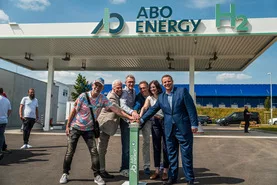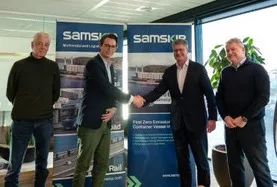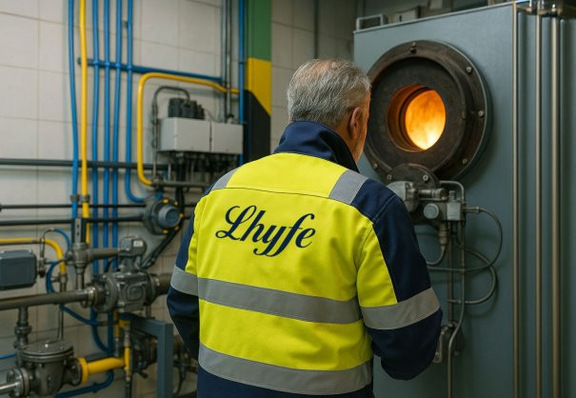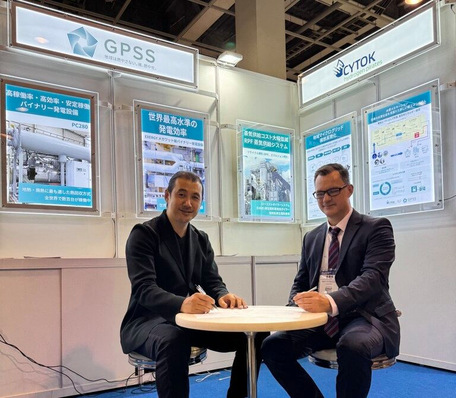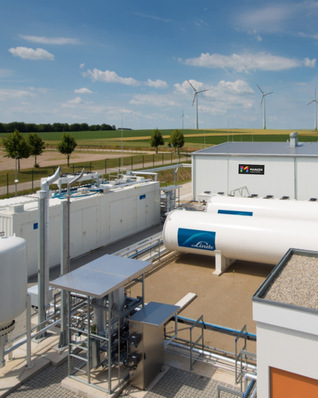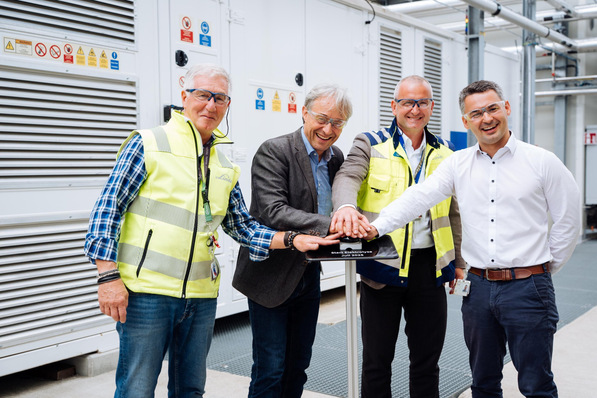Bosbüll in North Frisia is expanding its existing district heating network. The densification is set to begin in fall 2025. The first households could be connected as early as the 2025/26 heating season. The district heating network is operated by Bosbüll Energie, a joint venture between the Bosbüll citizens’ wind farm and the energy company GP Joule.
The current district heating network is based on power-to-heat technologies. Electricity from local wind and solar installations is used to generate heat via a 240-kilowatt heat pump. In addition, an electric heating element is used to absorb “excess” electricity from the grid. The generated heat is temporarily stored in a buffer tank. A peak load boiler serves as a backup.
Hydrogen production provides additional heatIn the future, part of the heat will also come from hydrogen production. Two electrolyzers, powered by local wind and solar energy, are located directly next to the heating plant. The process heat generated during electrolysis is fed into the district heating network. The electrolyzers are part of the eFarm project, which was initiated by GP Joule.
In North Frisia, eFarm supplies, among others, fuel cell buses in public transport with green hydrogen. More than 20 shareholders are involved in the project, including citizens’ wind and solar parks.
“Our municipal district heating network shows how sustainable and at the same time economically viable local heat supply can be,” says Ingo Böhm, Mayor of Bosbüll and Managing Director of Bosbüll Energie.
Minister-President praises decentralized energy useDaniel Günther, Minister-President of the Federal State of Schleswig-Holstein, visited Bosbüll as part of his summer tour. He praised the municipality as an example of decentralized energy use: “Hydrogen production is a good example of intelligent, regional energy supply. Renewable energy is not only fed into the grid, but also used directly on site, stored, converted into hydrogen, or utilized in a district heating network.”




